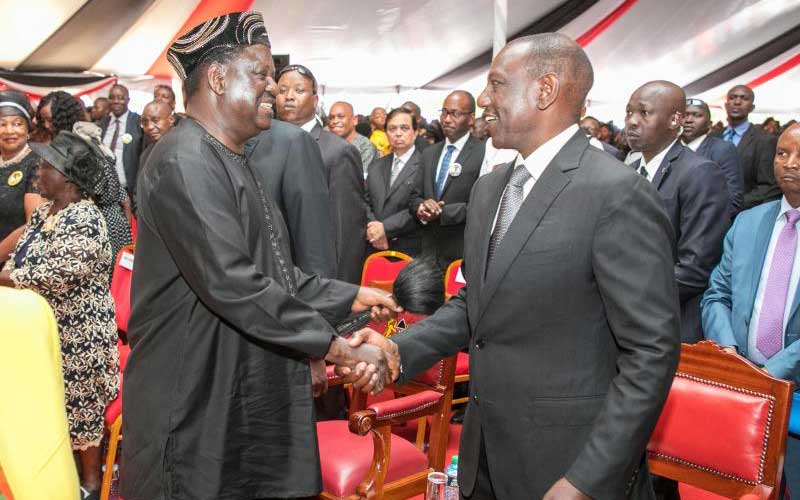×
The Standard e-Paper
Kenya’s Boldest Voice

ODM leader Raila Odinga with Deputy President William Ruto during the funeral of musician Joseph Kamaru at Muthithi Secondary School in Murang’a on October 2018. [File, Standard]
Politically energetic, strategic and aggressive, Deputy President William Ruto is following in the footsteps of opposition leader Raila Odinga whose four decades in politics associate him so much with defying the status quo.